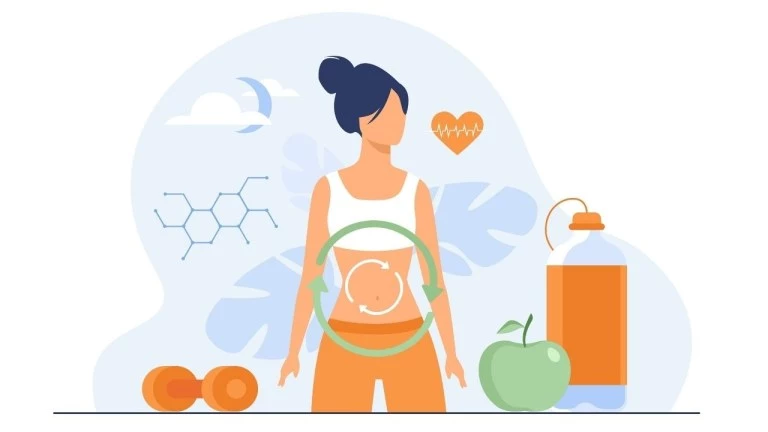Egg Allergy In Babies, Symptoms and Their Treatment in 2022
The egg is a healthy food choice for the baby because it is rich in protein, iron, and choline. Egg recipes are easy to prepare for parents and for babies to chew. But, remember egg allergy in Babies is one of the most common food allergies.
If your baby is allergic to eggs, then you have to avoid egg and egg products. Good thing is that most of the kids (not all) outgrow this allergy.
What is an egg allergy?

Egg allergy is an immune system’s overreaction to one or more proteins in an egg. When eggs are eaten, the body sees the egg proteins as a harmful foreign material and triggering the production of immunoglobin E (IgE) antibodies to neutralize the protein.
Next time when your body comes in contact with these proteins, these IgE antibodies recognize them and sends out histamine and other chemicals to defend against them. Histamine and other chemicals are responsible for allergic signs and symptoms.
Which egg proteins causes allergy in babies?
Egg contains two parts- egg white and egg yolk. Egg white is usually a more common cause of allergy in babies than egg yolk. An egg yolk allergy is rarely found in babies.
Egg white contains proteins namely- Ovomucoid, Ovalbumin, Ovotransferrin, Lysozyme, and egg yolk contains proteins namely- Livetin, Apovitillin, Phosvitin.
The two proteins ovomucoid (OVM) and Ovalbumin (OVA) from egg white are a more common cause of allergies. The allergies from other proteins of egg white and egg yolk are rare.
If your baby is allergic to only ovalbumin, can eat cooked/baked egg. The Ovalbumin protein is heat sensitive and if the egg white is heated at enough temperature for enough long time, a starch will break this protein.
What are the symptoms of egg allergy developed in babies?
An egg allergy usually occurs in few minutes to few hours after eating egg or egg-containing food products. Symptoms and severity of symptoms differ from person to person.
An Egg allergy in Babies affects the skin and respiratory, gastrointestinal, and cardiovascular systems of the baby.
The most common symptoms are-
- Skin hives, red spots, swelling,
- Gastrointestinal symptoms like cramps, nausea, diarrhea, and vomiting,
- Nasal congestion, runny nose, sneezing (allergic rhinitis), watery eyes,
- Asthma symptoms like coughing, wheezing, shortness of breath, etc.
- And, Anaphylaxis is life-threatening, the uncommon reaction generally affects the cardiovascular and respiratory system.
In this reaction, the airways block and the drop in blood pressure. Babies lose color, become lightheaded, feel irritable or drowsy and pass out.
How is egg allergy in babies diagnosed?
If you have acute symptoms after eating eggs or egg products, an allergist will likely perform allergy tests like the skin prick test, the blood test, or both to confirm the diagnosis. A food challenge test is also necessary for the conclusion of the egg allergy.
In the Skin Prick test, a small amount of concentrated (known) egg allergen is inserted into the skin through the needle. Redness or blistering will occur which indicates that the individual is allergic to eggs. This test is important because some people may react to touching an egg, but not to eating it.
Blood, or specific IgE testing, can identify your immune system’s response to egg proteins by measuring the amount of certain immunoglobin (IgE) antibodies.
Other tests do not always provide a conclusion for food allergy so your doctor or an allergist may suggest a food elimination and challenge test.
In this test, they told temporarily avoid all eggs or products containing eggs (elimination diet), then follow up with the introduction of egg back into your diet (food challenge) under strict medical supervision.
What is the treatment for egg allergy?
- Avoid eggs or egg products is the only treatment for egg allergy. This is very difficult because the egg is a hidden food ingredient for many food products. You will get the list of few hidden sources of egg in this blog.
- In addition to this, many people who are allergic to chicken eggs are also allergic to the other kinds of bird eggs-turkey, quail, or duck eggs. In few cases, you will find egg-allergic people are also allergic to chicken. This is called bird-egg syndrome.
- Sometimes, people may be allergic to eggs have reactions after only touching the egg, so also avoid skin contact with an egg and the egg products.
- To avoid egg allergy in babies, parents or caretakers need to become familiar and comfortable with reading food labels. The allergens are mentioned on the labels of all packed food products.
- Despite all the efforts, if your baby comes in contact with an egg, and shows mild signs and symptoms then antihistamine medicine is useful.
- For severe reaction (anaphylaxis), you may need an emergency auto-injection of Epinephrine (adrenaline). Also, you need to call for an ambulance and visit the hospital even if epinephrine provides relief, as the symptoms may recur.
Hidden sources of egg
An egg is commonly used as a hidden ingredient in many processed food products as well as in nonfood products also. To get egg-free products, read the ingredients list on the label and check allergen information.
If you find below listed names as an ingredient on the food label, then it means the food may contain egg proteins:
- Albumin
- Globulin
- Lecithin
- Lysozyme
- Apovitellin
- Avidin globulin
- Ovalbumin
- Ovovitellin
- Ovomucoid
- Ovomucin
- Vitellin
- Albumin
- Globulin
- Lecithin
- Lysozyme
- Apovitellin
- Avidin globulin
- Ovalbumin
- Ovovitellin
- Ovomucoid
- Ovomucin
- Vitellin
The food products that may contain eggs are
1. Egg (dried, powdered, solids, white, yolk)
2. Eggnog
3. Marshmallows and marzipan
4. Mayonnaise
5. Meatloaf and meatballs
6. Meringue and frostings
7. Surimi
8. Baked products, cake decoration, and fillings like buttercream, frosting
9. Ice cream, pudding, custard
10. Salad dressings
11. Mixes, batter, sauces
12. Pretzels (sometimes covered in egg wash)
13. Tortillas
14. Many kinds of pasta
15. Root beer, wine
16. Coffee drinks like cappuccino (eggs are used to create the foam)
Many people are very sensitive, skin contact of food items and non-food items containing eggs can create an allergic reaction in these people.
The non-food products are-
1. Shampoo
2. Cosmetics
3. Medicines
4. Fingerpaints etc.
Egg allergy and vaccination
Certain vaccines and nasal spray vaccines use egg protein during manufacturing. The modern formulation doesn’t use egg proteins.
There are three vaccines like Influenza (Flu) vaccine, Yellow fever & typus vaccine, and Measles-Mumps-Rubella (MMR) vaccine have some amount of egg proteins because they’re cultured either in eggs or in chick embryos. This may create a risk of allergic reaction in a person with an egg allergy.
Consult with your pediatrician about the vaccination if your baby has an egg allergy. So that he can decide if the vaccine is safe by doing a test, or provide you an alternative vaccine.
Read More:
FAQ:
Q. When can we introduce eggs to babies?
A. The Center for Disease Control (CDC) recommended that introduce potentially allergenic foods -eggs, wheat, soya, etc. at around the age of 6 months when other foods are introduced.
Q. Will the egg allergy resolve?
A. Yes. Egg allergy will resolve in most children, usually by 16-year age. Children who have had more severe allergic reactions may take a longer time to grow out of the egg allergy and in some cases, it will persist lifelong.
References:
https://www.cdc.gov/flu/prevent/egg-allergies
https://www.foodallergy.org/allergens/egg-allergy
https://acaai.org/allergies/allergic-conditions/food/egg/






